The IWC Pilot’s Watch Timezoner Edition “Le Petit Prince”
Testing IWC's practical bezel-actuated multi-time zone watch.
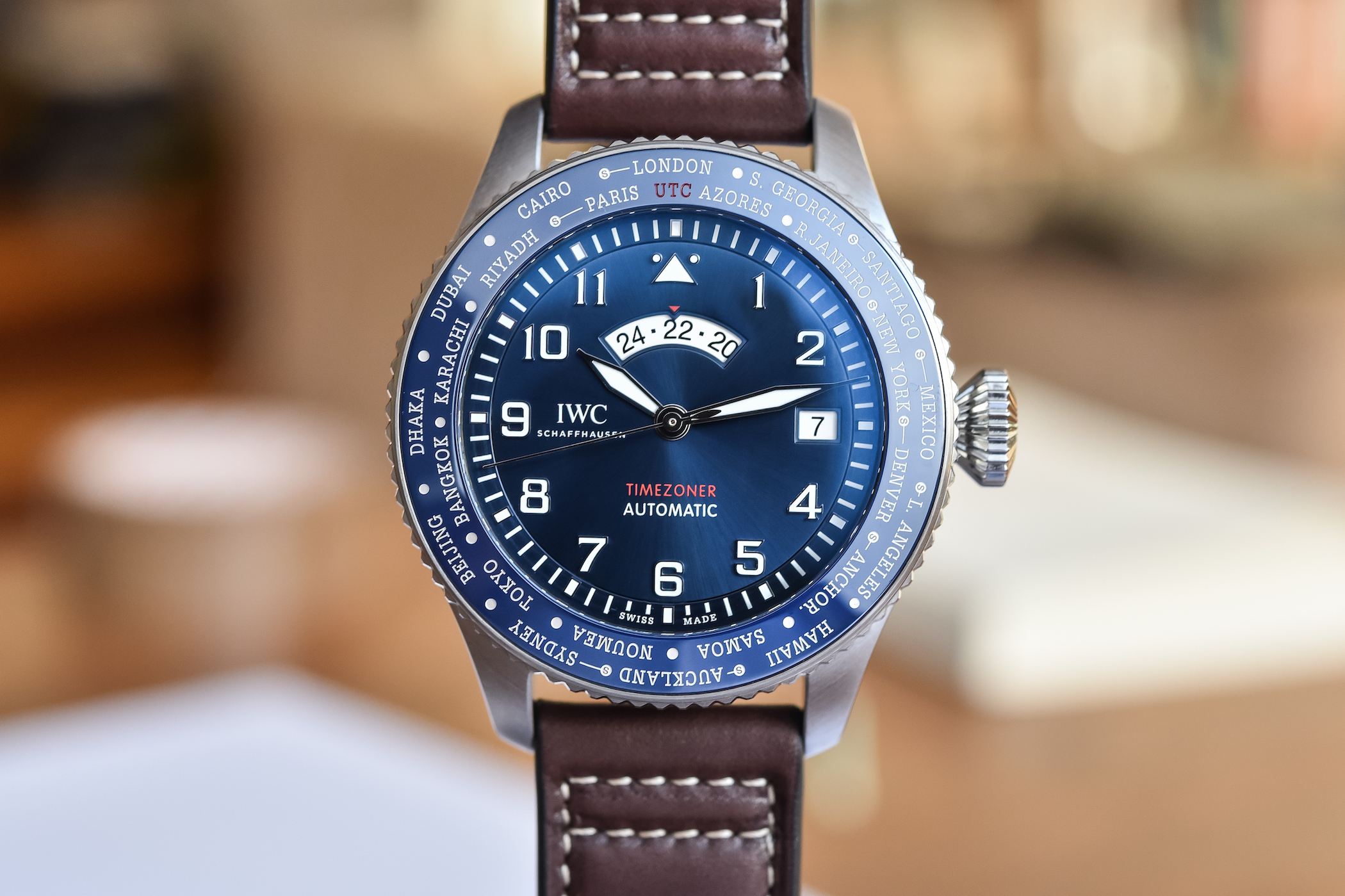
IWC has a long tradition of pilot’s watches, which goes back to as far as 1936, and includes some icons such as the 1940s Big Pilot’s Watches or post-War Mark 11 models. Since the mid-1990s, the concept has become an entire collection of the Schaffhausen-based manufacture. However, there’s more than the classic models and the brand has developed special sub-collections such as the vintage Spitfire, the technical Top Gun or the Petit Prince, with trademark blue dials. Today, we give a closer look at the latest watch to bear this name, the recently-introduced Pilot’s Watch Timezoner Edition “Le Petit Prince” IW395503 and its rather interesting bezel mechanism.
The “Le Petit Prince” collection commemorates the literary work of the author Antoine de Saint-Exupéry, whose wonderful story “The Little Prince” is one of the best-selling books in literary history. Saint-Exupéry, in addition to being a world-famous author, was also a pioneering aviator, a successful commercial pilot before World War II, before joining the French Air Force at the start of the war, flying reconnaissance missions. All IWC Edition “Le Petit Prince” watches are easily recognizable thanks to their signature blue dial, slightly more elegant approach to design that a classic Flieger watch and stylized Arabic numerals. Today’s watch makes no exception to the rule and adds some pretty cool mechanical functions, including a rather unique bezel/wearer interaction.
The patented Timezoner function
With most watches, the interaction between the user and his watch is classically done via the crown, an element that serves to wind the movement and adjust the time. For most watches, this is indeed sufficient. Yet, watchmaking loves to go beyond the indication of the time and certain complications require the use of more than just a crown. Think about chronographs, which need pusher to start/stop/reset the stopwatch function. In the same vein, some watches are equipped with rotating bezels, allowing for calculations – dive watches, pilot’s watches with timer or countdown, GMT watches with 24h scales… However, the bezel is, most of the time, an element of the habillage with no interaction with the movement itself.
As for watches that display multiple time zones, a function that we, at MONOCHROME, still believe to be one of the must-haves in a collection, switching time zones means an adjustment at the crown, and sometimes that means unscrewing it too. While not dramatically complex, there was room for improvement. There are some exceptions where the adjustments are executed via pushers. But IWC’s solution is actually quite cool.
The original Timezoner concept was developed by watchmaker Michael Vogt who equipped watches with this bezel-set GMT system under the brand Vogard, first unveiled at Baselworld 2014. The patents owned by Vogard will later be sold to IWC-Richemont, Vogt explaining that “as a niche manufacturer and watch atelier we do not have the financial and structural resources to fully exploit the potential of the Timezoner technology” and he was pleased to transfer the rights to “one of leading brands with the power to further develop the Timezoner.” And indeed, IWC did so.
The first watch equipped with the Timezoner function was unveiled in 2016, back then complemented by a flyback chronograph in the Pilot’s Watch Timezoner IW395001. The concept returned in 2019 in a simplified “Spitfire” version, without the stopwatch function.
What is the Timezoner function exactly? To make it short, a clever man/watch interaction where all actions related to the time zone adjustments are done by the bezel, which is mechanically linked to the movement. The graduated bezel here isn’t only present as a part of the habillage and to display indications, it acts on the hand that displays the local time (the large white-filled hour hand). In real life, it works like this: press on the bezel, turn it to the desired time zone (according to the cities indicated on the ceramic insert) and release, and then the hour hand for the local time will be positioned to the correct time. Effortless and intuitive.
The ceramic bezel, here presented in blue with engraved scale in white, comprises the classic 24 main cities – each corresponding to a full-hour time zone. Reference time, also named UTC, is highlighted in red and you’ll notice that some of the time zone feature an additional marker, corresponding to DST (daylight saving time). Not per se a world-time watch, it is more of a super-GMT model that allows a view on all time zones around the world. The arched window shows a white disc with a 24-hour scale acting as an AM/PM indicator and is linked with the central hours (in order to make sure in which direction the disc is rotating). When the bezel is rotated to switch time zones, both the central hour hand and the 24-hour disc move in sync. A date, a ubiquitous feature of traveller’s watches, complements this functional display.
The Pilot’s Watch Timezoner Edition “Le Petit Prince”
This new “Le Petit Prince” Timezoner is a basically a slightly more elegant, less rugged take on the concept introduced in the 2019 Spitfire model. Mechanically, we’re talking about two identical watches, however, the look is rather different, both in terms of colours, spirit and finishing. In classic “Le Petit Prince” style, the watch combines luxurious elements with antique design cues.
The Timezoner, despite not being part of the Big Pilot’s family, has all the traits of these oversized models. Be prepared, this isn’t a small watch that will slide under a cuff. The Timezoner is a big, chunky and robust watch that is meant to be worn on the wrist, and not around the wrist. Clearly, it wouldn’t be out of place strapped around a leather flight jacket. Like it or not, these proportions are part of the collection’s DNA. The case measures 46mm in diameter and 15mm in height, with lugs that aren’t particularly short. The diamond-shaped crown is equally oversized and the whole watch has some presence. The strap being large yet supple, it is balanced and relatively comfortable, but can’t be unnoticed.
The case of this new reference IW395503 has a classic, very serious execution, with brushed surfaces and polished accents. The watch comes with IWC’s traditional specifications, meaning a top sapphire crystal secured against displacement by drop in air pressure and a sufficient 60m water-resistance. The bezel, which is used to set the time zone, is extremely pleasant to use with a reassuring mechanical feel. The polished ceramic insert is equally finely executed and the whole watch is made to last. The brown calfskin strap, closed by a folding clasp, is nicely complementing the blue dial/bezel configuration.
As for the dial, the classic “Le Petit Prince” elements are there, with a blue sunray-brushed surface, some red accents and the signature gothic applied numerals and hands, both framed in polished metal and largely filled with Super-LumiNova. Contrast is great and nighttime legibility is flawless.
Under a screwed sapphire caseback, something new to this model, is an in-house automatic movement, the calibre 82760 – which uses the same base as the IWC Portugieser Automatic 40mm. Running at 4Hz, and boasting 60 hours of power reserve, it is wound by the brand’s distinctive Pellaton system. Nicely executed, with openworked bridges and rotor, most of the parts are visible and the decoration, even though mostly machine-applied, is pleasant with circular graining and Geneva stripes, as well as an 18k gold medallion on the rotor depicting St Exupery’s Petit Prince character.
AVAILABILITY & PRICE
The IWC Pilot’s Watch Timezoner Edition “Le Petit Prince” IW395503 is a limited edition of 1,500 pieces and it can now be ordered from IWC online shop and retailers. It will retail for EUR 15,100 (incl. taxes), CHF 15,000 (incl. taxes) or USD 13,800 (excl. taxes). More details at iwc.com.

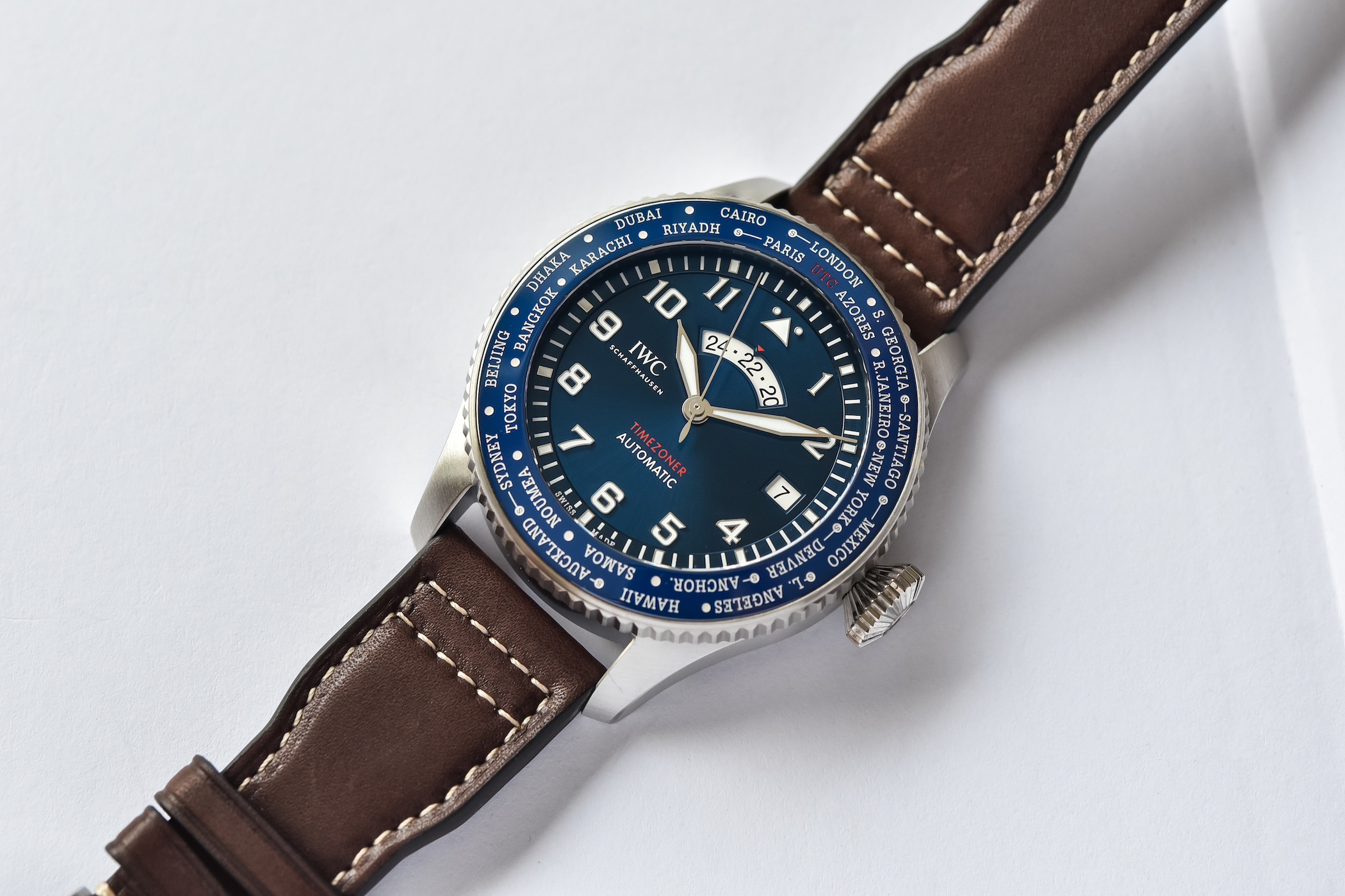
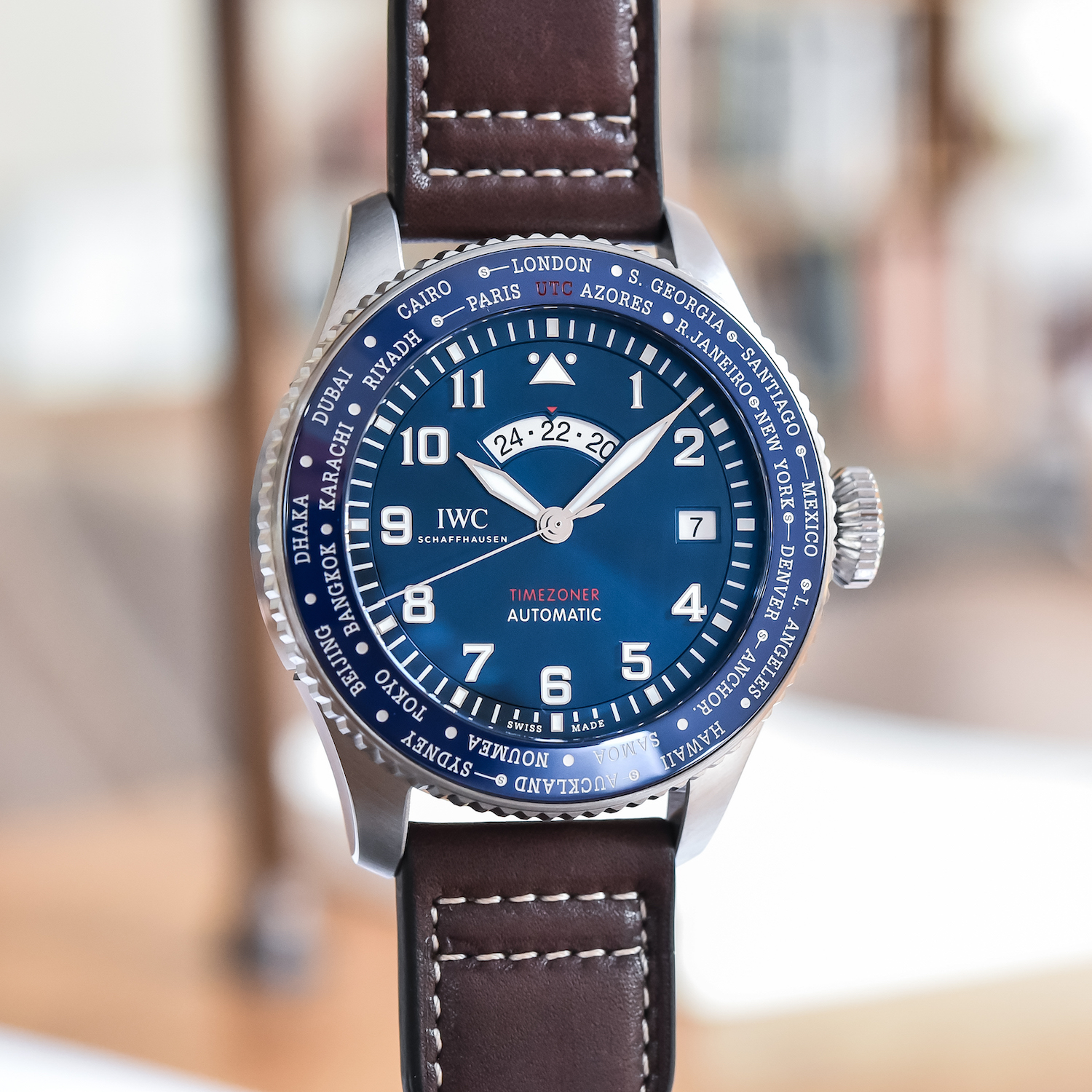
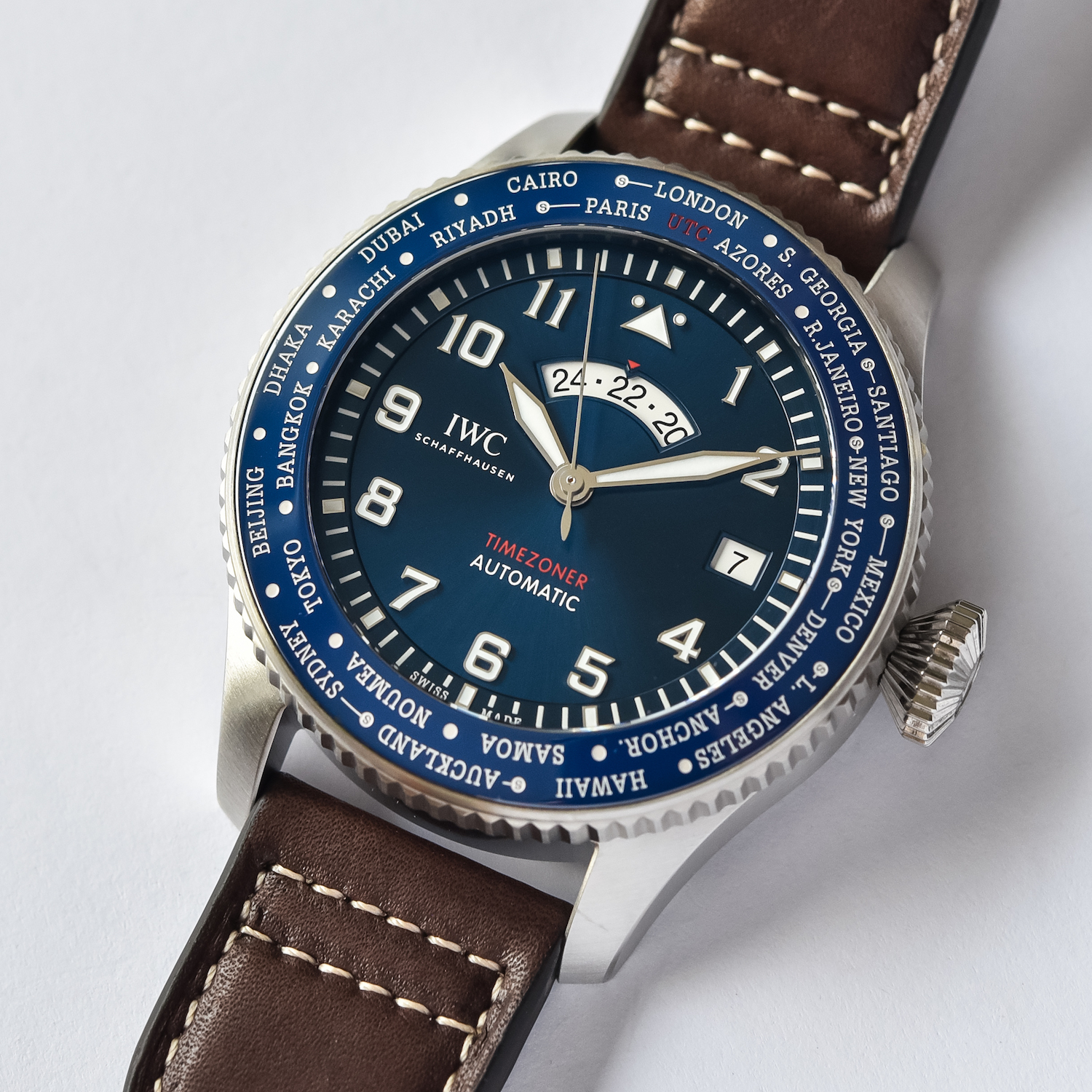
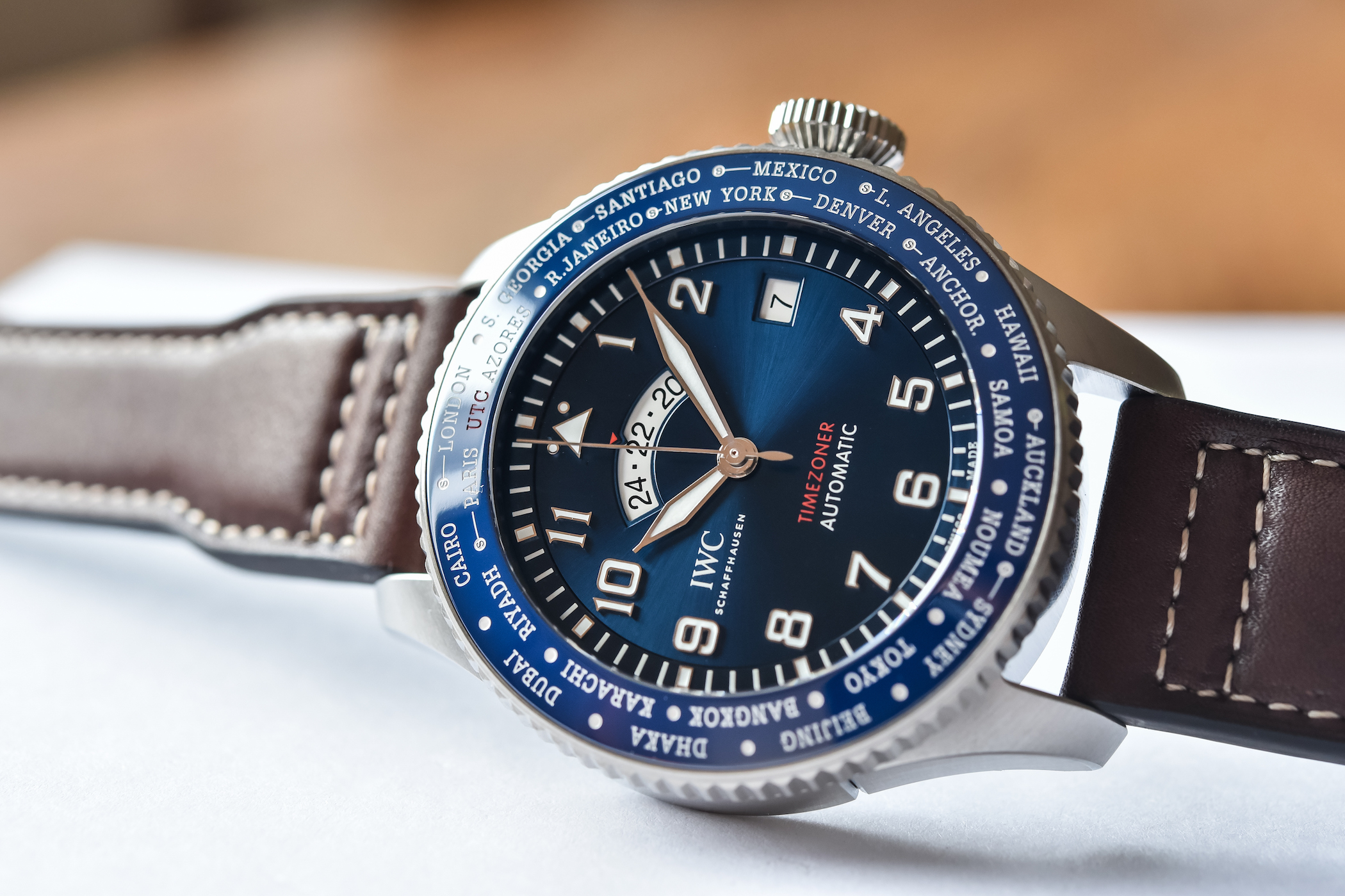
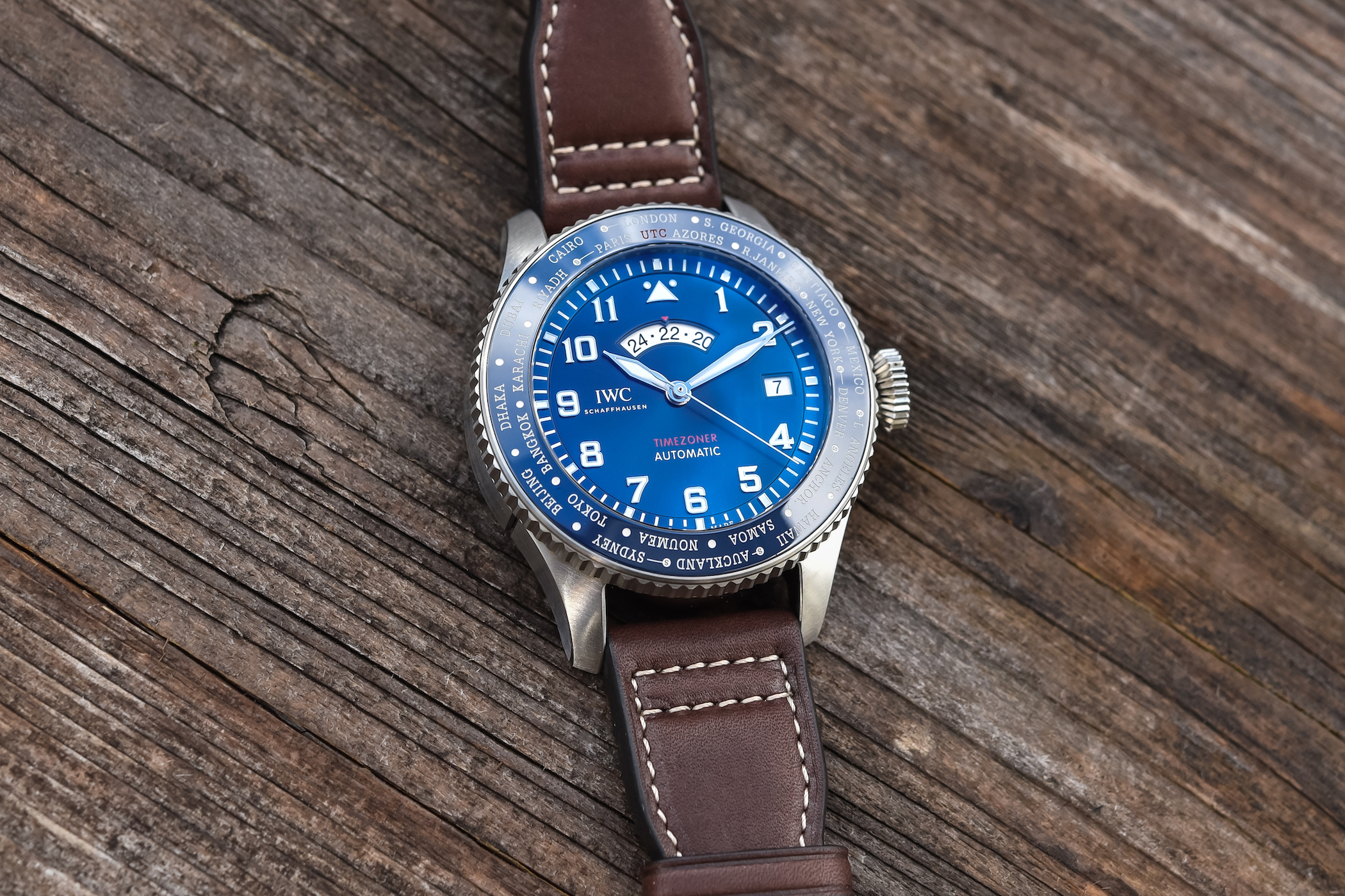
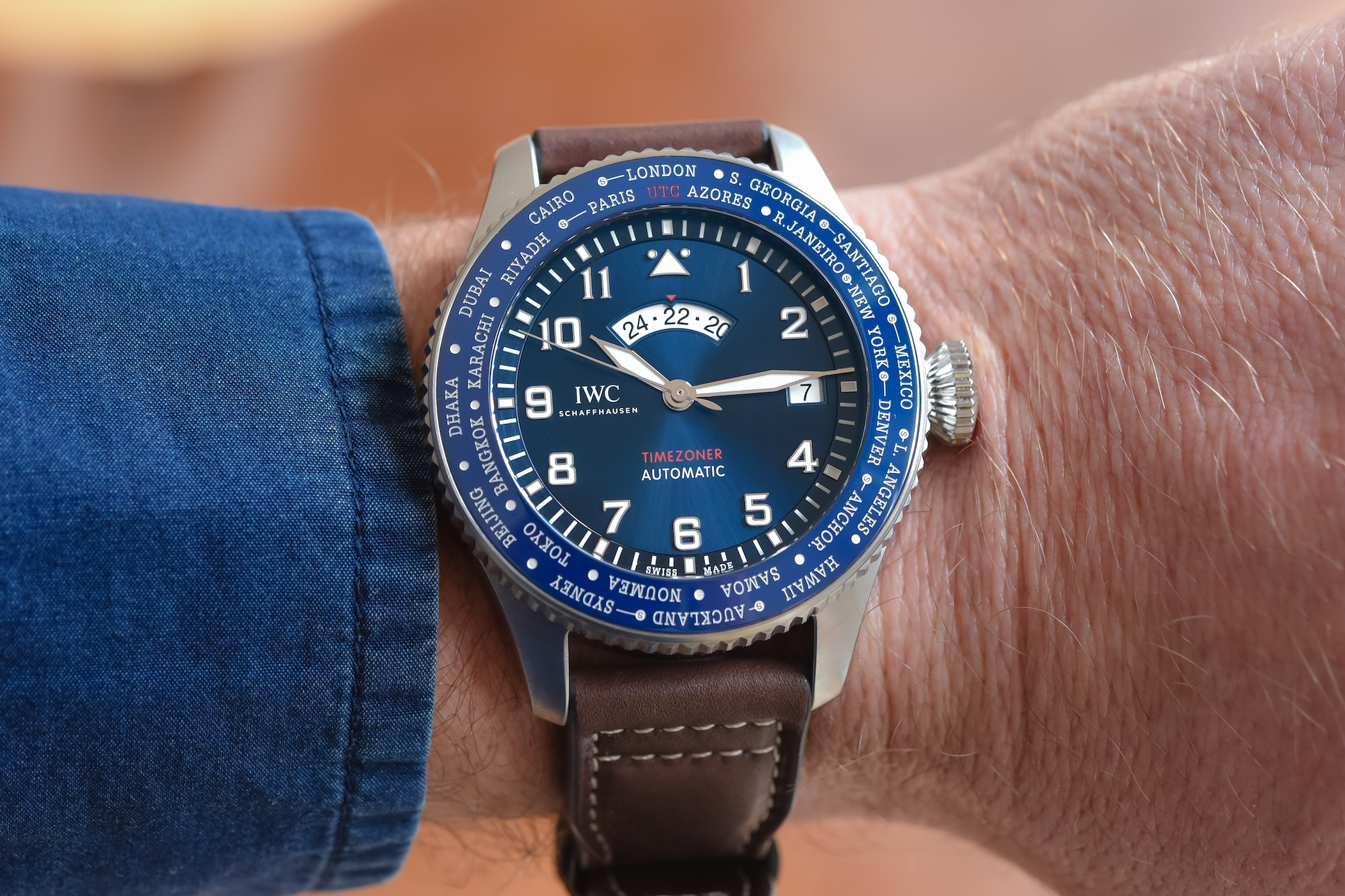

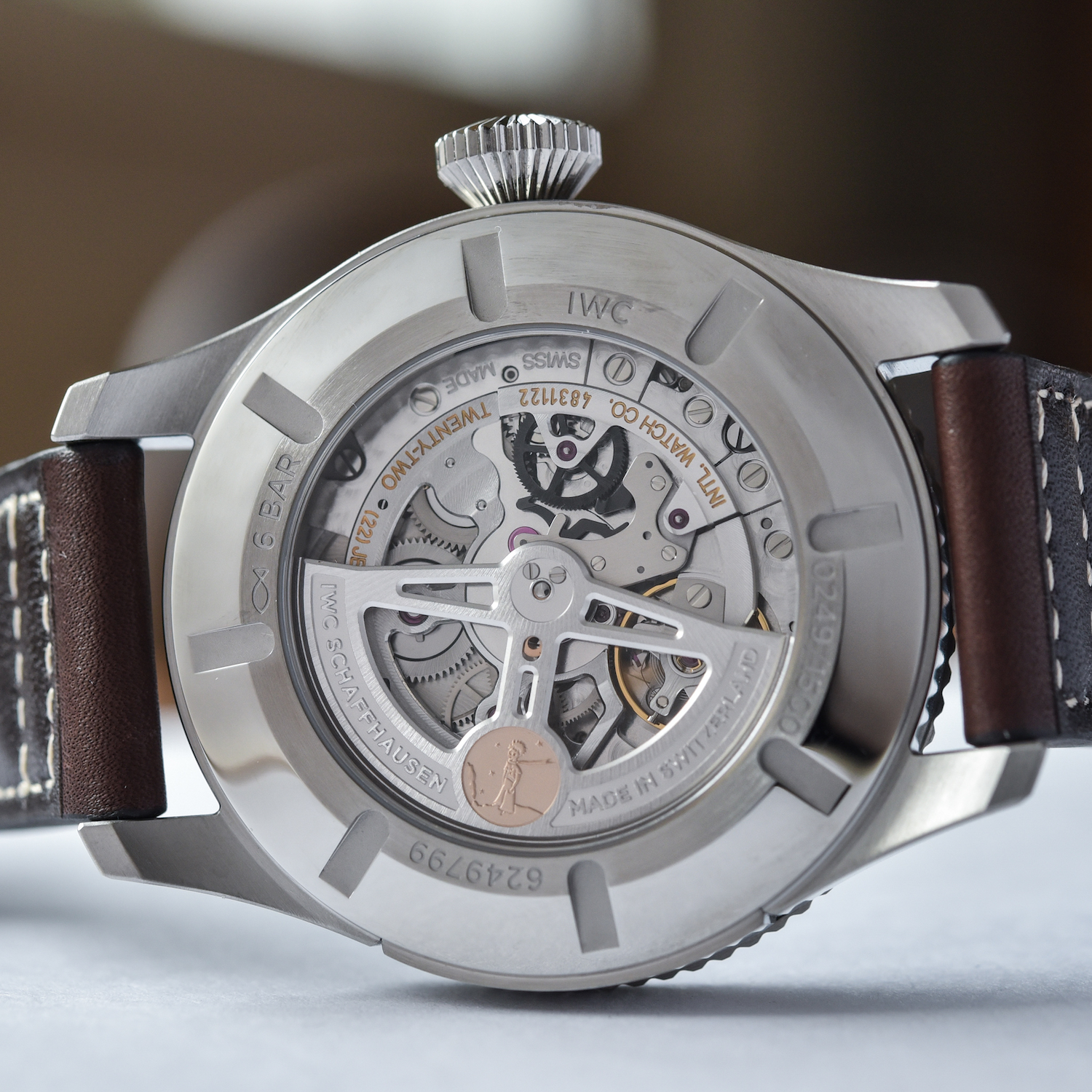
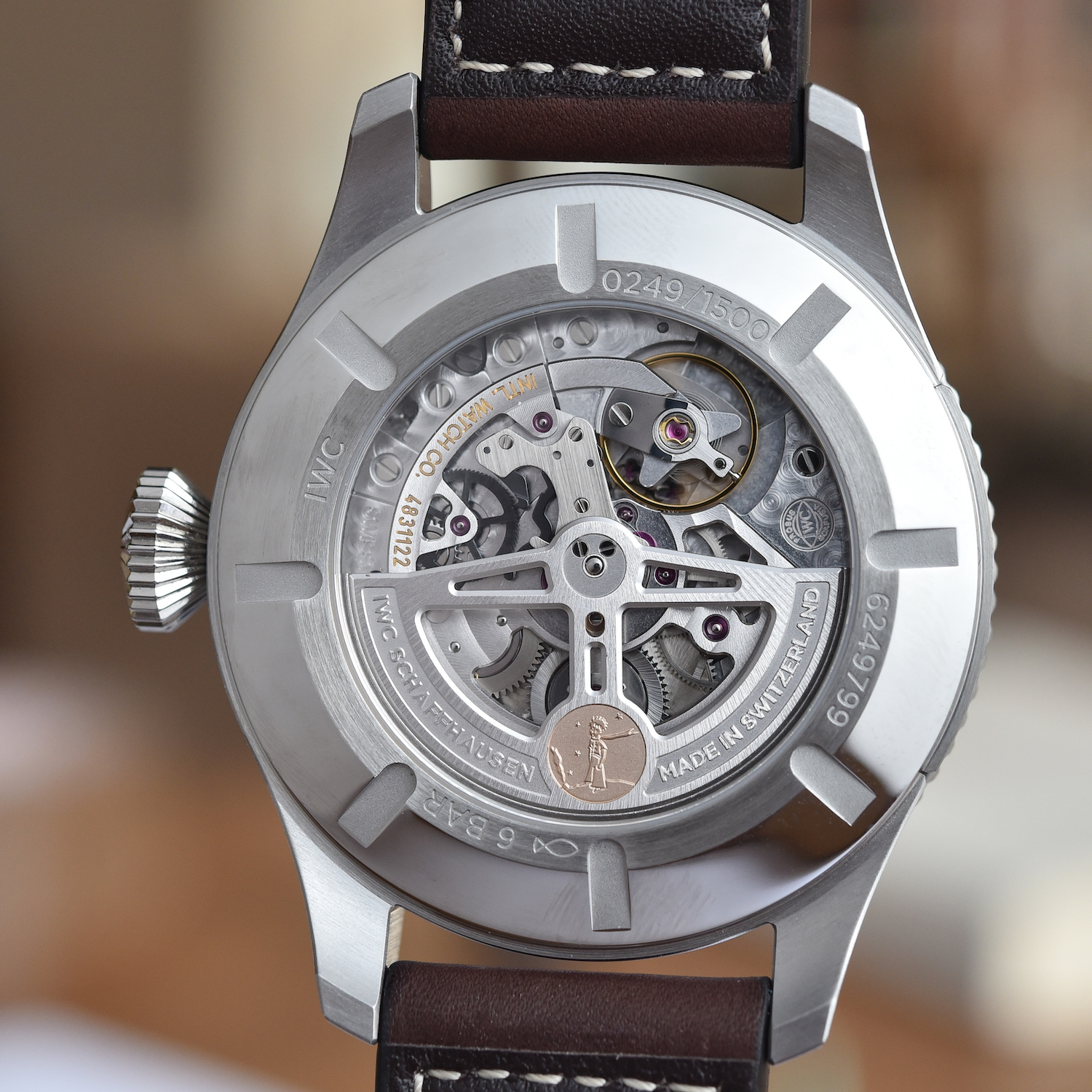



1 response
Lovely …if only it didn’t have the radar cross section of a small apartment complex …